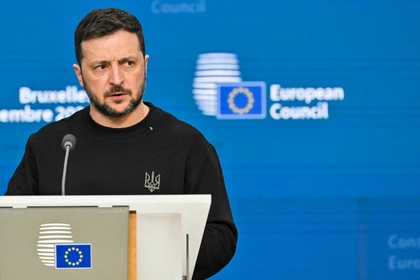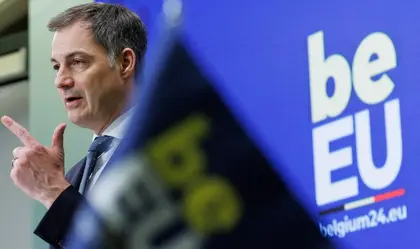Belgium’s federal prosecutor has launched an investigation against members of the European Parliament allegedly paid by Moscow, and Prime Minister Alexander De Croo will bring the issue of Russian interference to the top of next week’s leaders’ summit, he said on Friday, April 12.
At the end of the investigation, the prosecutors will either indict the suspects or drop the case.
JOIN US ON TELEGRAM
Follow our coverage of the war on the @Kyivpost_official.
Last month, Czech and Belgian authorities uncovered what they said was a pro-Russian influence operation in Europe involving a pro-Russian network that had allegedly paid European politicians to spread propaganda.
That same week, De Croo said that members of the European Parliament (MEPs) are paid by Moscow to spread its messages, causing an uproar in Brussels and across the EU.
After days of silence on the case, De Croo confirmed that some MEPs have been approached and paid by Moscow.
In addition, “Belgian intelligence services have confirmed the existence of a pro-Russian interference network with activities in several European countries and in Belgium.”
He announced that Belgium’s judicial authorities have now launched a formal investigation into the alleged interference.
“I can say is that our federal prosecutor has started an investigation, which is based on a declassified report that our intelligence services brought out the day before yesterday,” De Croo told a press conference in Brussels.

Zelensky Says Trump and EU Must Work Together to Secure Peace
“According to our intelligence service, the objectives of Moscow are very clear: to help elect more pro-Russian candidates to the European Parliament and reinforce a certain pro-Russian narrative in that institution,” he added, stressing the need to protect June’s EU elections from foreign interference.
“My question is: Do we have as European institutions enough tools to combat that?”
Complications of prosecuting interference
He said the federal prosecutor has requested Eurojust – the EU Agency for Criminal Justice Cooperation – for an urgent meeting to discuss the issue and coordinate cross-border cases, as the Russian networks under investigation reportedly affect several countries, such as Belgium, Germany, and the Czech Republic.
At the same time, De Croo announced he would bring the issue of Russian interference to the top of the agenda of next week’s summit so EU leaders can broadly discuss whether the bloc is sufficiently equipped to battle Russian – or any other – interference, and which specific measure to take next.
De Croo also called for an expansion of the mandate of the EU’s public prosecutor (EPPO) and the European anti-fraud office (OLAF) to allow for prosecuting foreign interference and disinformation.
“If today the mandate would not be adequate for that, I think we should broaden the mandates to be sure that we have the right tools to fight what European democracy is confronted with,” he said.
It is not clear how many MEPs are being investigated and if there are other suspects.
“I cannot communicate on how many people, in which countries, which names, which gender they are, which party they are,” De Croo said. “Certain information is classified information which I myself do not have access to.”
The European Parliament leadership and political groups have started proposing actions to double down on security, despite the reforms undertaken since the Qatargate scandal that involved Qatar and Morocco trying to buy influence in the European Parliament.
See the original article by Max Griera here.
You can also highlight the text and press Ctrl + Enter






